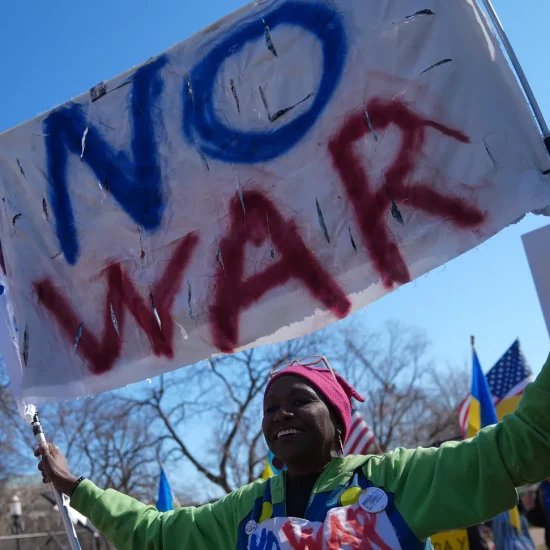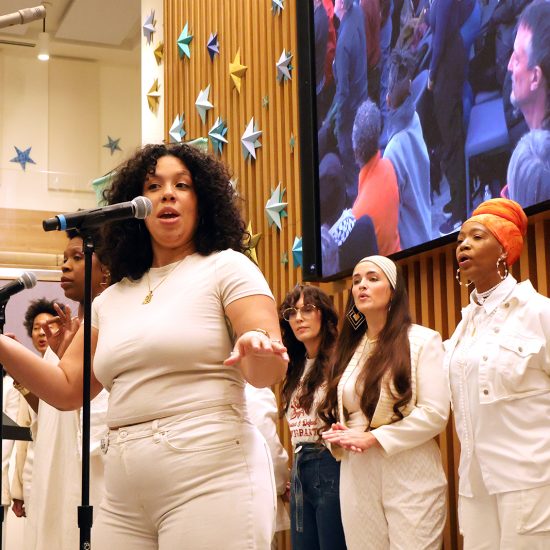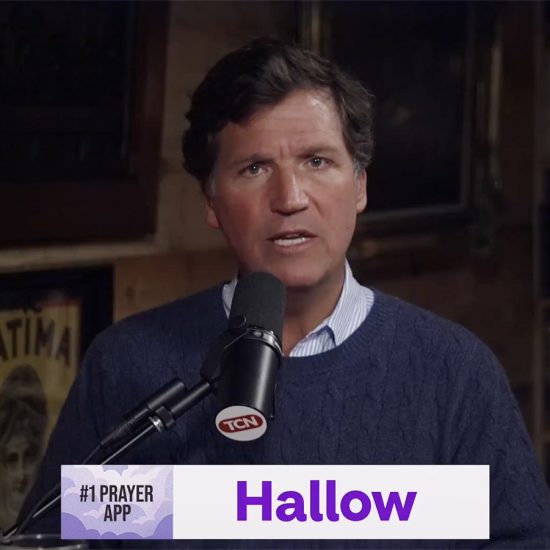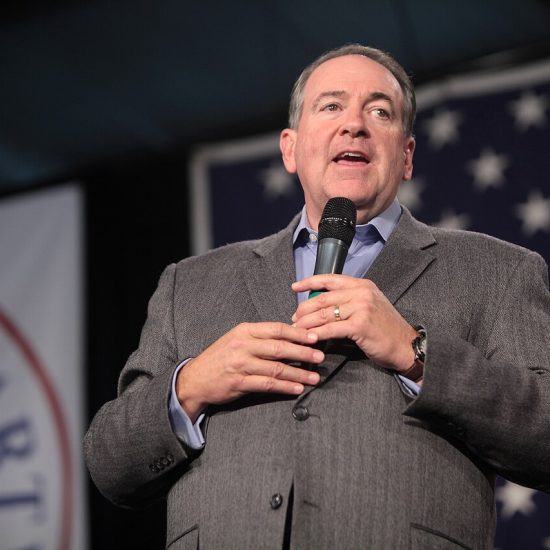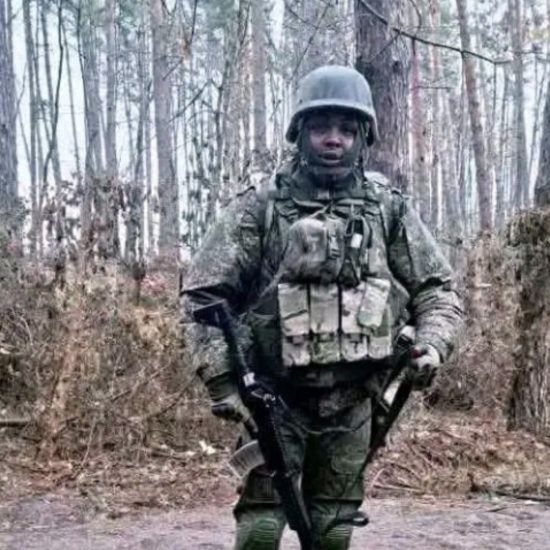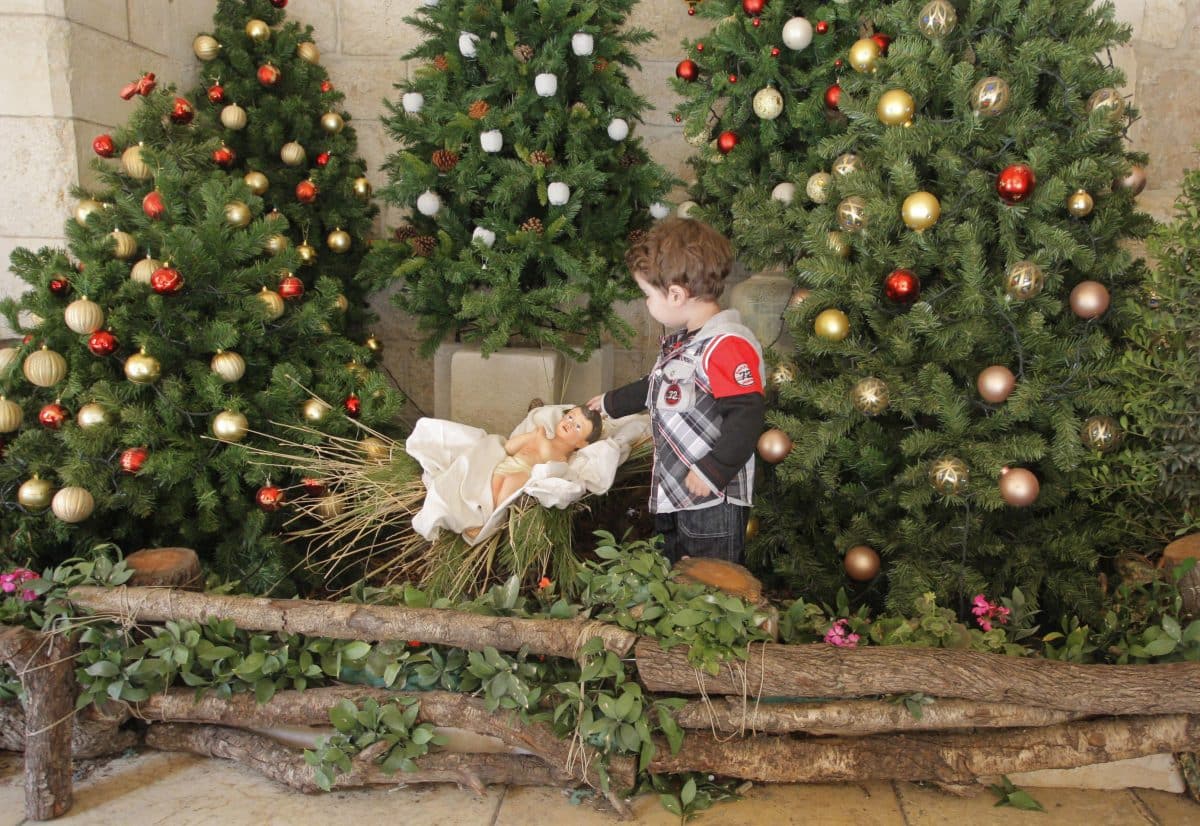
As the fragile ceasefire in Gaza barely holds, the future for Palestinians in Gaza and the West Bank, including the remaining community of Palestinian Christians, continues to look anything but bright. The world needs to understand the truth about the systematic oppression facing this community — and see past the bad-faith efforts to deny and conceal it.

Mother Agapia
When he addressed the United Nations earlier this year, Israel’s Prime Minister Benjamin Netanyahu, unsurprisingly, tried to conceal the truth about how Palestinian Christians are treated. He said: “When Bethlehem, the birthplace of Jesus, was under Israeli control, 80 percent of its residents were Christians. But since the PA took control, that number has dwindled to under 20 percent.” The statement used misleading statistics to imply that Christians in the West Bank, where Bethlehem is located, are better off when Israel is in control. In my experience, nothing could be farther from the truth.
I’m a Russian Orthodox nun who moved to Jerusalem nearly thirty years ago as a member of the St. Mary Magdalene Russian Orthodox Church on the Mount of Olives. Every Christmas season, we nuns would walk the five miles to Bethlehem at least once to celebrate Liturgy at the Church of the Nativity, the site of Christ’s birth. Although I am now based at a convent in the United States, I visit the Holy Land twice a year and remain close to my teachers and students living in Bethlehem, which is now fully encircled by a wall Israel started erecting in 2002. Now, when going to revere the place of our Savior’s birth, one has the uncomfortable feeling of visiting a prison complex.
I bear witness that the hardship facing Christians in Bethlehem is a microcosm of the suffering and plight of all Palestinians living in the Holy Land. A tiny minority of Palestinians living in Gaza and twenty-five or so miles away in the West Bank are Christian, descendants of Christ’s first followers. Like all Palestinians, Christians are subjected to the restrictions and hardships of occupation, despite the holy and historical significance of our presence in these lands. As Christians living in Palestine, our churches are attacked, we are blocked from attending certain churches and holy sites because of Israel’s wall, our schools are endangered, and our religious objects are destroyed by IDF soldiers at checkpoint inspections.
Israel’s isolation and domination of the West Bank has been a decades-long endeavor — I remember when their government built a wall in 2001, separating my church, St. Mary Magdalene in Jerusalem, from its school that I ran in Bethany in the West Bank. The wall more than inconvenienced us — it was a harbinger of disrespect for our Christian faith and mission.
While Christians in Palestine face literal walls, Christians in the United States continue to face metaphorical and digital walls designed to keep them from seeing and facing the truth. Just after Prime Minister Netanyahu addressed the UN this year, the Israeli government made public its plan to spread the untruth that Christians in the Holy Land are better off under Israeli control. In a legally-mandated Foreign Agents Registration Act (FARA) filing, Israeli officials revealed that they planned “the largest Geofencing and Christian Targeting campaign in US History. … [to create] a digital perimeter around key Christian gathering places, delivering targeted pro-Israel content. … with a goal to combat low American Evangelical Christian approval of the Nation of Israel.”

A Palestinian boy looks at a Baby Jesus inside the Church of Nativity, traditionally believed by Christians to be the birthplace of Jesus Christ, in the West Bank town of Bethlehem, Thursday, Dec. 24, 2009. (AP Photo/ Nasser Shiyoukhi)
The filing shows how Israel’s Ministry of Foreign Affairs plans to digitally target U.S. churches with distorted claims such as “Israel protects Christians like no other nation in the Middle East” and “democratic freedoms in Israel include religious and non-religious freedoms.” Christmas-time messaging will include, “Israel is the birthplace of Jesus; come see Bethlehem for yourself.”
I urge American Christians to reject and see past these distortions. Indeed, I recommend that you go to Bethlehem to see for yourself the truth about how incredibly difficult life is for Christians there and in the rest of the Holy Land. See for yourself the wall that has been built on Palestinian land, separating families from their loved ones and farmers from their crops; take a look at the endless checkpoints obstructing Palestinian movement and the illegal Israeli settlements claiming the most valuable land and resources for themselves. American Christians deserve to know the truth, not the Netanyahu regime’s “spin,” about what’s happening to their brothers and sisters in the Holy Land, especially when their tax dollars help fund an occupation that marginalizes Christian and Muslim Palestinians alike.
If we can see past the wall of lies, there is a better way forward. We must work to advocate for a peaceful and just Israeli-Palestinian solution that allows for a thriving, continued Christian presence in our religion’s holiest cities. The Telos Group, with which I’ve been working, is just one example of an organization building communities of American peacemakers, equipping them with the tools to help reconcile a conflict that can seem intractable; U.S. Christians would be wise to follow and join in their work.
Jesus’s birth brought hope to the world — a covenant fulfilled. Let us be inspired by that hope to make the next chapter one of peace and justice for both Palestinians and Israelis. The ceasefire in Gaza is no end, but just a beginning. Difficult, important work lies ahead. As Christians, we are prepared for that. We must not only bear witness to the plight of our fellow Christians and pray for them, but also let our faith inspire us to act with courage and compassion.
Mother Agapia Stephanopoulos is an American-born Orthodox nun who has taught in Christian schools, led religious institutions in Bethlehem and Jerusalem, and worked to protect the heritage of the region’s ancient Christian communities. Drawing on decades of firsthand experience, she advocates for justice, peace, and interfaith solidarity, highlighting the struggles of Christians in Palestine and the wider Middle East.

